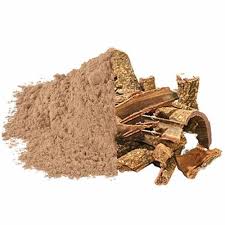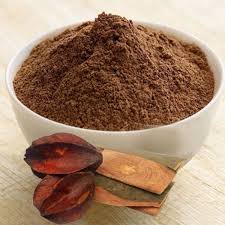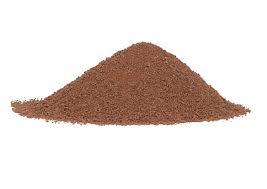Harness the Ancient Power of Arjuna Bark Powder
Dive into the world of ancient remedies and sacred rituals with our premium Arjuna Bark Powder. Known for its potent properties and revered for centuries in traditional Ayurvedic practices, Arjuna Bark Powder is a treasure trove of wellness, offering a bridge between nature’s wisdom and your well-being. Available in convenient sizes of 100g, 250g, and 1kg, Arjuna Bark Powder seamlessly integrates into your daily life, whether for spiritual practices or holistic health.
Unveiling the Significance of Arjuna Bark Powder
Arjuna Bark Powder, derived from the bark of the Terminalia arjuna tree, holds a place of reverence in Indian culture. Known as Arjuna in Hindi, Maruthu in Tamil, Dhavala in Bengali, Tella Maddi in Telugu, and Arjuna in many other Indic languages, this sacred powder is believed to possess potent healing properties. Its use spans across various traditions, from ancient Ayurvedic formulations to contemporary holistic practices. At Poojn, we bring you the purest form of Arjuna Bark Powder, ethically sourced and meticulously processed to retain its natural potency.
Embracing the Multifaceted Uses of Arjuna Bark Powder
Arjuna Bark Powder is a truly versatile element, finding its place in both sacred rituals and wellness routines:
- Spiritual Significance: In puja ceremonies, Arjuna Bark Powder is often used as a sacred offering, believed to enhance positive energy and spiritual connection. Its presence on the altar is thought to invoke blessings and purity.
- Traditional Medicine: Ayurveda recognizes Arjuna Bark Powder for its potential cardiovascular benefits, supporting healthy heart function and promoting overall circulatory wellness.*
- Holistic Wellness: Incorporate Arjuna Bark Powder into your daily routine as a nourishing addition to smoothies, teas, or other recipes to harness its potential health benefits.*
Experience the Poojn Difference – Arjuna Bark Powder
Our Arjuna Bark Powder stands out for its exceptional quality and purity. We partner with trusted sources who sustainably harvest the bark, ensuring minimal environmental impact. Our meticulous processing methods preserve the powder’s natural integrity, guaranteeing you receive the maximum benefit from each use. Choose from our convenient 100g, 250g, and 1kg packaging options to suit your individual needs.
Arjuna Bark Powder : Your Gateway to Wellness
Embrace the timeless wisdom of nature with Arjuna Bark Powder. Whether you seek to deepen your spiritual practice or enhance your well-being journey, this remarkable powder offers a potent connection to ancient traditions. Order your Arjuna Bark Powder today and discover the transformative power it holds.
Disclaimer: These statements have not been evaluated by the Food and Drug Administration. This product is not intended to diagnose, treat, cure, or prevent any disease. Consult with a healthcare professional before using Arjuna Bark Powder for medicinal purposes, especially if you are pregnant, nursing, or have any underlying health conditions.





Reviews
There are no reviews yet.